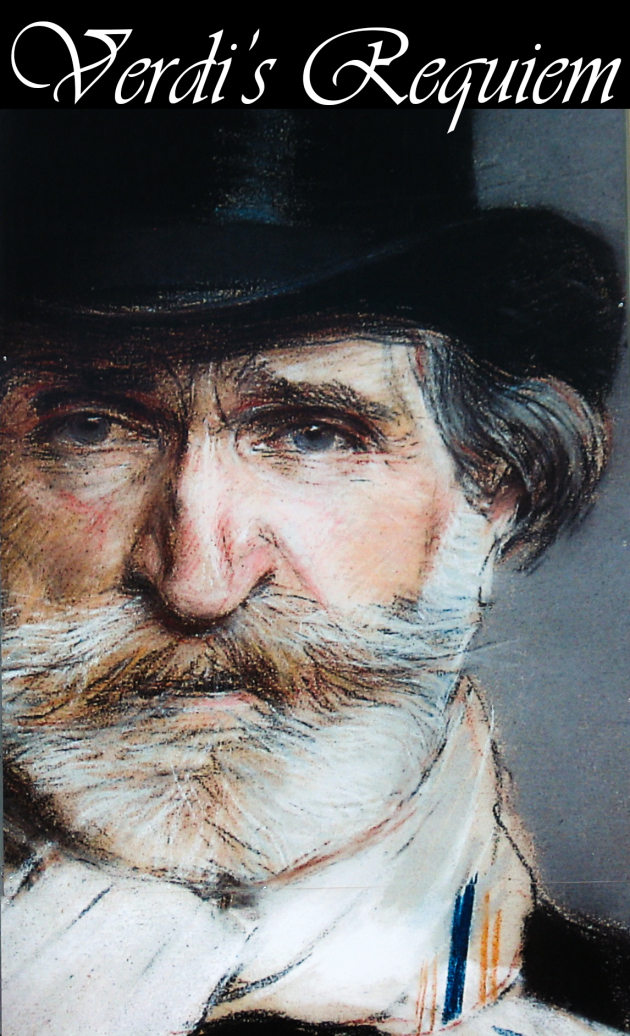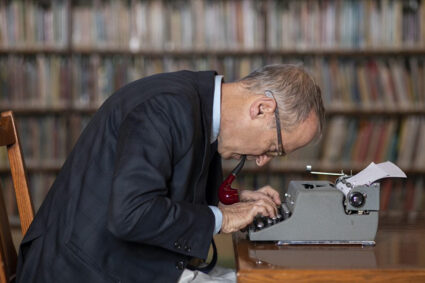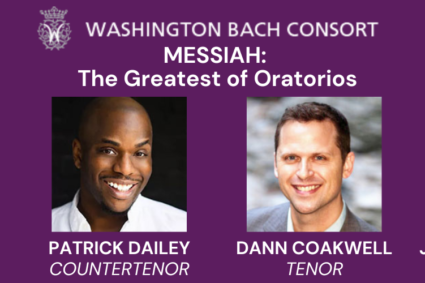
One of the most amazing choral compositions ever written, Verdi’s Requiem, was performed Saturday night at The Music Center at Strathmore. The National Philharmonic Orchestra and Chorale conducted by Stan Engebretson presented this masterpiece in it’s entirety. They were accompanied by four soloist; Arianna Zukerman, soprano, Margaret Mezzacappa, mezzo-soprano, William Davenport, tenor and Kevin Deas, bass.
Verdi’s Requiem was originally a collaboration amongst 13 Italian composers intended to honor the late Italian composer Gioachino Rossini. The effort fell short and was later abandoned. Five years later, Alessandro Manzoni, an Italian poet/novelist much revered by Verdi passed away. Unresolved with his previous efforts having finished the finale, Libera Me, Verdi continued to complete the requiem, now in honor of Manzoni. Verdi praised Manzoni through a correspondence: ” I would have gone down on my knees before him if we were allowed to worship men. They say it is wrong to do so, and it may be, although we raise up on altars many that have neither the talent nor the virtue of Manzoni and indeed are perfect scoundrels.” That’s saying a lot! Purely based off the adoration Verdi had for Manzoni you would expect this composition to be intuitively Verdi’s best work. No disrespect to Gioachino Rossini (I Like The Barber of Seville just as much as the next; especially when featured in a Bugs Bunny cartoon.) but I’m sure glad the original project was abandoned and Verdi had the opportunity the complete the requiem in its entirety by himself.
[youtube=http://www.youtube.com/watch?v=DdT1Mw4QJT8]
Greatness does not come without controversy. Many critics after the premiere viewed the requiem negatively, stating that it was too dubious and operatic to be religious. They were no doubt referring to the Dies Irae section. It’s powerful force is no doubt intimidating but the eschatological nature only mirrors the dramatic church hymns that accompany it. An ominous sound only seems fitting. With the explosive nature of this section and Verdi’s willingness to break standard compositional rules, I might describe Dies Irae as some of the first heavy metal music ever written. It’s full of booming thunderous percussion representing the Earth being torn apart, followed by a trumpet call that repeats as the dead are raised from their tombs. Sounds like the lyrics to a Slayer song. Verdi, self admittedly, is not very religious. The tones still only represent the visual nature of the hymns. “Day of wrath, that day the world will dissolve in ashes, as foretold by David and Sibyl! What trembling there will be when the judge will come to examine all things!”

The vocalist assembled for this requiem were fantastic! Featured, was one of the most renown soloist of this generation, Arianna Zuckerman. She was absolutely magnificent! Her dramatic tones echoed at the forefront of a thunderous wall of sound. To hear her perform Libera Me with the chorus as a finale was remarkable! Not to be overlooked was the double choir itself. This requiem is often considered one the the greatest choral works ever written and it takes a great chorus in order to perform it. The dynamism they portrayed was astounding! Directing the choir; it was like conductor Stan Engebretson was playing a massive pipe organ. His flailing gestures would ensue as he pivoted in a semi-circular fashion cuing each section of the choir. Incredible sound cascaded throughout the Music Center; it was exhilarating!
Each one of the soloist performed their parts exquisitely, Kevin Deas always amazes with his deep rich tones. This was an immensely enjoyable program! Verdi’s requiem heard in it’s entirety is astounding! There is no comparison to hearing it live! It’s such a lively composition considering it is a requiem. The National Philharmonic performed it superbly!





